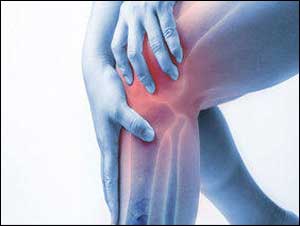- Home
- Editorial
- News
- Practice Guidelines
- Anesthesiology Guidelines
- Cancer Guidelines
- Cardiac Sciences Guidelines
- Critical Care Guidelines
- Dentistry Guidelines
- Dermatology Guidelines
- Diabetes and Endo Guidelines
- Diagnostics Guidelines
- ENT Guidelines
- Featured Practice Guidelines
- Gastroenterology Guidelines
- Geriatrics Guidelines
- Medicine Guidelines
- Nephrology Guidelines
- Neurosciences Guidelines
- Obs and Gynae Guidelines
- Ophthalmology Guidelines
- Orthopaedics Guidelines
- Paediatrics Guidelines
- Psychiatry Guidelines
- Pulmonology Guidelines
- Radiology Guidelines
- Surgery Guidelines
- Urology Guidelines
Vitamin D supplementation reduces cartilage degeneration and progression of knee osteoarthritis

Vitamin D supplementation reduces cartilage degeneration and progression of knee osteoarthritis, finds study.
Higher intake of both vitamin D and Vitamin C lessens cartilage degeneration in patients with knee osteoarthritis (OA), finds a recent study published in the journal Arthritis Care & Research. When the patients are supplemented with vitamin D alone over 4 years, it significantly reduced the progression of knee joint abnormalities.
Vitamin D is needed for the body to absorb calcium for strong bones. It is made by our bodies when we are exposed to sunlight and found in a few foods, such as eggs, salmon and fortified milk products. It is also available as a vitamin supplement.
Osteoarthritis patients are often manifested with various vitamin deficiencies including decreased serum levels of vitamin C and vitamin D. A previous study have demonstrated lower odds of having hip OA in people with recommended or higher intake of vitamin C and another study reported vitamin D deficiency in Osteoarthritis patients. Thus, it becomes important to understand the impact of vitamin deficiencies on the knee joint and the value of nutritional supplements for the treatment and prevention of Osteoarthritis.
Gabby B. Joseph, Department of Radiology and Biomedical Imaging, University of California, San Francisco, and colleagues studied data from the Osteoarthritis Initiative (OAI) cohort to analyze the links between vitamin D and C supplementation and magnetic resonance imaging (MRI) measures of joint structure (cartilage, meniscus, and bone marrow) and cartilage composition (T2).
The study included 1,785 participants from the OAI cohort with radiographic Kellgren Lawrence knee grades of 0 to 3 in the right knee.
Using answers in the Block Brief 2000 questionnaire, the researchers analyzed the intake of vitamin C and D, including dietary and supplemental, from baseline. They then evaluated MRI data using 3T cartilage T2 quantification and semiquantitative joint morphology gradings (WORMS), at baseline and 4 years.
Also Read: Vitamin D enhances topical treatment of dry eye disease
Key findings of the study include:
- Higher vitamin C intake was associated with lower average cartilage T2, medial tibia T2, and medial tibia WORMS (coeff_standardized range: ‐0.07 to ‐0.05).
- Higher vitamin D intake was associated with lower cartilage WORMS sum score and medial femur WORMS score (coeff_standardized range: ‐0.24 to ‐0.09).
- Consistent use of vitamin D supplements over 4 years of 400 IU at least once a week was associated with significantly less worsening of cartilage, meniscus and bone marrow abnormalities (odds ratio range: 0.40 to 0.56).
Also Read: Vitamin D Supplementation may help prevent development and progression of diabetes,finds study
“Overall, the cross-sectional results showed that some measures of vitamin C and D intake from food and supplements were associated with less cartilage degeneration,” write the authors. “While consistent vitamin C supplementation over 4 years did not have a significant association with changes in joint morphology, consistent use of at least 300 IU of vitamin D at least 4-6 days per week) over 4 years was associated with less progression of knee joint abnormalities in the cartilage and bone marrow, and consistent use of at least 400 IU at least 1-3 days per week was beneficial for cartilage, bone as well as meniscus tissues."
"Owing to the observational nature of this study, future longitudinal randomized controlled trials of vitamin D supplementation are warranted," concluded the authors.
To read the complete log on to https://doi.org/10.1002/acr.24021

Disclaimer: This site is primarily intended for healthcare professionals. Any content/information on this website does not replace the advice of medical and/or health professionals and should not be construed as medical/diagnostic advice/endorsement or prescription. Use of this site is subject to our terms of use, privacy policy, advertisement policy. © 2020 Minerva Medical Treatment Pvt Ltd